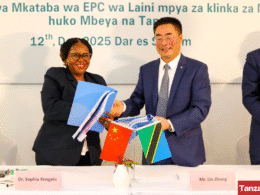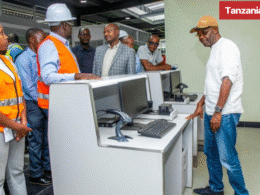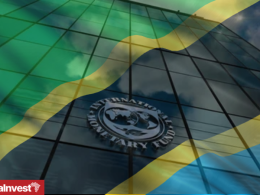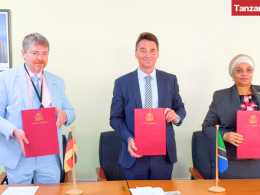The World Bank Group announced that Tanzania will access up to USD 2.4 billion in concessional financing over the next three years, an increase of half a billion dollars over previous allocations.
The additional resources will come from the World Bank Group’s International Development Association (IDA).
The President of the World Bank Group Jim Yong Kim made the announcement, during his recent visit to Tanzania on March 19-21, 2017.
He explained that Tanzania is one of the “scale-up countries,” meaning that in addition to concessional resources, it will be able to borrow additional resources on non-concessional terms that are lower than market rates, thanks to the country’s strong macroeconomic management and political stability and the overall growth opportunities.
During his visit, President Kim and Tanzanian President John Magufuli laid the foundation stone for the Ubungo Interchange in Ubungo District of Dar Es Salaam.
With a total value of USD 780 million, the interchange will be constructed under the Dar Es Salaam Urban Transport Project (DUTP) as a follow-on investment to the Second Central Transport Corridor (CTCP2) financed by the World Bank.
The Ubungo Interchange is a critical piece of infrastrucure designed to reduce congestion at a key strategic gateway in Dar Es Salaam, and the next step in an ambitious effort to connect the Port of Dar Es Salaam to rural areas, industries, and the wider region.
Kim underscored the need to leverage private sector investment for infrastructure development as well as in job-creating industries for the estimated 800,000 young men and women entering the labor market in Tanzania each year.
“We see tremendous opportunities in developing countries for private sector investment in areas like infrastructure, which is crucial for jobs and growth. The key to unlocking this potential is through greater collaboration between the public and private sector to achieve each developing country’s highest aspirations.”
President Kim and President Magufuli also signed the financing agreements for the USD 225 million Second Water Sector Support Project (WSSP2), and for the USD 130m additional financing for the Tanzania Strategic Cities Project.
The WSSP2 will support the strengthening of capacities for integrated water resources planning and management in Tanzania, as well as improve access to water supply and sanitation services in Dar es Salaam.
The Tanzania Strategic Cities Project will finance an upscaling of infrastructure in eight cities across Tanzania.











